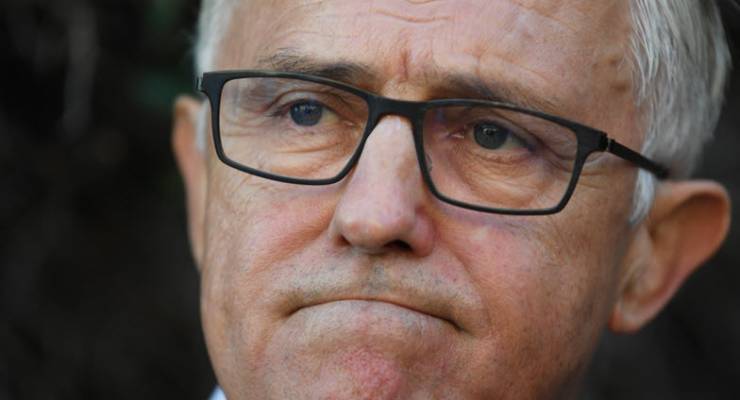
Senior Liberals are right to be concerned about Niki Savva’s report card on the Morrison transition — Plots and Prayers — and the accompanying Sky News doco-series Bad Blood, New Blood. For nearly a century, books by gallery reporters like Savva have been how the political narrative, once in flux, becomes set all but immutably in concrete.
Day-to-day reporting, long-form features, talk shows and interviews all move the journalistic narrative from point to point while we’re trying to keep up. But the narrative remains fluid, open to constant revision as new characters or plot twists emerge.
But once frozen in the solidity — the certainty — of a book or documentary? That’s it. Set. Certain as gospel.
Politicians — often more versed in Australia’s political traditions than journalists — understand this well. That’s why they’re eager to set the narrative by talking to putative authors and, more recently, doco makers. It’s partly self-interest: they get to put their perspective on the page. More, they can hope, as prisoners do, that cooperating will get them favourable treatment before the court of history.
They have to get in quick, particularly when an impending election is set to reshape politics. As Samuel Johnson cautioned 300 years ago, “When a man knows he is to be hanged in a fortnight, it concentrates his mind wonderfully”.
So, in the lead-up to the “unwinnable” 1993 election, Labor ministers eagerly lined up to talk with the ABC’s Philip Chubb and Sue Spencer for the spectacular Labor in Power series, only for it to be broadcast after that apparently doomed government had been surprisingly reelected.
And now, in the lead-up to another unwinnable election, it’s happened again, in print and video.
This has real impact on politics — often for decades afterwards. Take the still classic Caucus Crisis, Warren Denning’s 1937 account of the collapse of the Scullin Labor government in the face of the Great Depression. As Graham Freudenberg said, “Denning’s essentially tragic vision of Labor, its idealism fatally flawed by opportunism, has influenced the literature of Australian politics ever since.” He could have been talking of this week’s #auspol hysteria over Labor’s approach to tax cuts.
Or Vere Gordon Childe’s 1923 book How Labour Governs, still used as a manual by wiser ALP heads attempting to manage the always fractious relationships between unions and the parliamentary party. (CFMMEU, anyone?)
Paul Kelly’s forensic accounting of the 1975 crisis, The Dismissal, ended up as a 1983 television series and, this year, of all things, a musical. For all its subsequent election wins, the Fraser government was never truly able to shake off the pall that this book’s reporting cast over its political legitimacy.
Since then, Kelly’s books have continued with a long-running political history of Australia, from The Hawke Ascendancy in 1984 through to Triumph and Demise covering the Rudd-Gillard-Rudd 30 years later. It has constructed the way we understand the past half-century, an understanding that has been modernised (and perhaps deepened) by the work of Kelly’s former colleague at The Australian George Megalogenis.
All those think-pieces about Hawke the reformer? Could have come straight out of Kelly.
Timing is everything. Barrie Cassidy’s 2010 election quickie, The Party Thieves, acted to legitimate the Gillard challenge, while Kerry-Anne Walsh’s The Stalking of Julia Gillard acted to delegitimate Rudd’s 2013 riposte. Not even Rudd’s two-volume memoir has been able to crack that accepted wisdom.
Political memoir is weaker. Perhaps our politicians lack the ability of great memoirists to distance the writing from the self, as though they are not subject to Enoch Powell’s law: “All political lives, unless they are cut off in midstream at a happy juncture, end in failure.”
Like all (temporarily successful) politicians, Morrison is certain that his election win wipes the slate clean, that everything that happened beforehand (and all their actions after) is justified by the election result.
Solidifying uncomfortable narratives in books and docos challenges this confidence. Rather, they show elections for what they are: just another twist in a long-running story which won’t be understood until we close the book.
Why do you think politicians get involved in these books? Write to boss@crikey.com.au with your full name and let us know your thoughts.








Crikey is committed to hosting lively discussions. Help us keep the conversation useful, interesting and welcoming. We aim to publish comments quickly in the interest of promoting robust conversation, but we’re a small team and we deploy filters to protect against legal risk. Occasionally your comment may be held up while we review, but we’re working as fast as we can to keep the conversation rolling.
The Crikey comment section is members-only content. Please subscribe to leave a comment.
The Crikey comment section is members-only content. Please login to leave a comment.